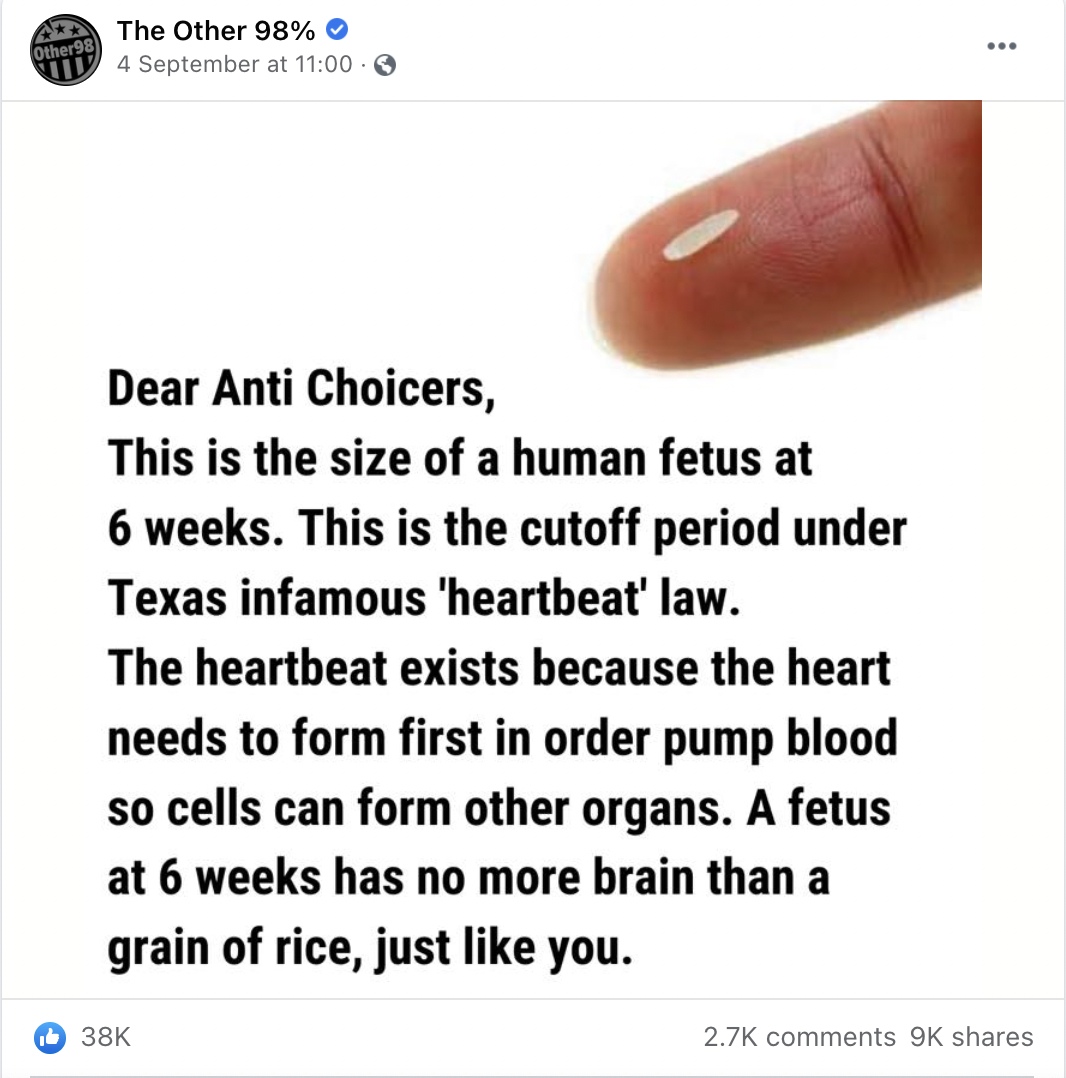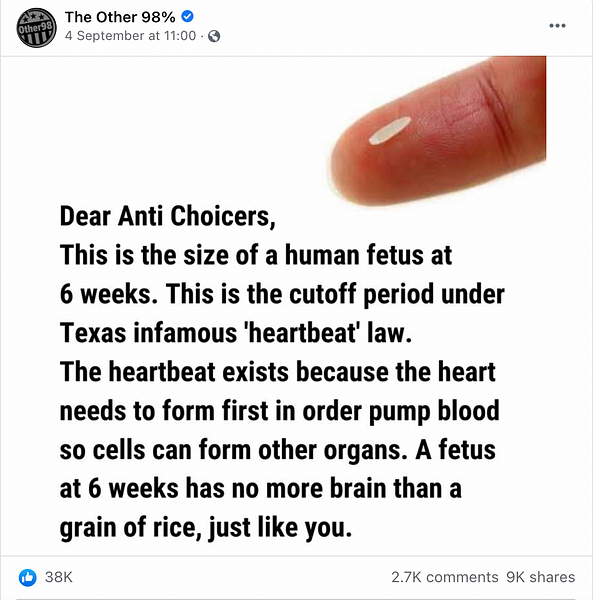A viral Facebook post claims that “A fetus at 6 weeks has no more brain than a grain of rice.” The post references the Texas heartbeat abortion law, which prohibits abortion when a fetal heartbeat can be detected, usually at six weeks.

The first claim in the post—that a baby during the sixth week of gestation is the size of a grain of rice—is accurate. Gestational calendars use the beginning of a woman’s last cycle as a start date, but conception usually occurs two weeks later, meaning that at this point, the embryo has been developing for four weeks and is about an eighth of an inch long. Despite the small size, however, the embryo is already incredibly complex.
NARAL Pro-Choice America declined to comment on the matter, but recommended reaching out to the American College of Obstetricians and Gynecologists. The ACOG’s lead for equity transformation, Dr. Jennifer Villavicencio, told The Dispatch Fact Check that “neural cells begin dividing during embryonic development, but the brain is a complex organ that takes an entire pregnancy to develop – and continues developing through infancy, childhood, and adolescence.” Prior to the sixth week of gestation, Villavicencio said “fetal brain development is in the form of microscopic neural cells dividing into the two types of cells that form the nervous system.”
In fact, by between four and six weeks, those cells have already completely formed a neural tube, the precursor to the brain and spinal cord. In an interview with The Dispatch Fact Check, Dr. Tara Sander Lee—a senior fellow and director of life sciences for the Charlotte Lozier Institute, a pro-life organization—explained that once the neural tube closes “then the more specific regions and structures in the brain begin to form and fall into place—and that’s the forebrain, the midbrain, and the hindbrain.” At the end of week five, electric brain activity starts to occur as neurons begin to fire.
There is debate over what the moral takeaway of this information should be, with opposite sides of the debate differing over whether this formation of the early nervous system and brain activity deserves the moral status of “life.” But it is clear that comparing a fetus at six weeks to a grain of rice is warranted only when it comes to size; saying that after six weeks of gestation a fetus “has no more brain than a grain of rice” misleads about the amount of development that has occurred thus far.
The Other 98% did not respond to a request for comment.
If you have a claim you would like to see us fact check, please send us an email at factcheck@thedispatch.com. If you would like to suggest a correction to this piece or any other Dispatch article, please email corrections@thedispatch.com.







Please note that we at The Dispatch hold ourselves, our work, and our commenters to a higher standard than other places on the internet. We welcome comments that foster genuine debate or discussion—including comments critical of us or our work—but responses that include ad hominem attacks on fellow Dispatch members or are intended to stoke fear and anger may be moderated.
With your membership, you only have the ability to comment on The Morning Dispatch articles. Consider upgrading to join the conversation everywhere.